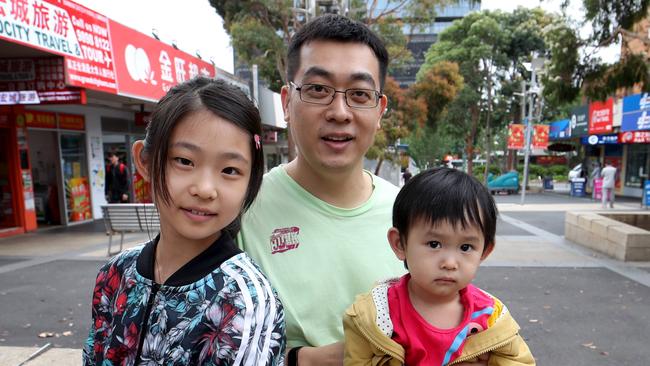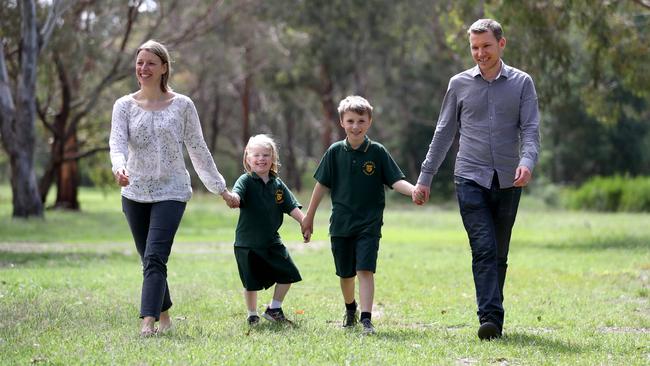Liberal heartland cannot be taken for granted
After the Victorian election, once-safe Liberal seats can no longer be taken for granted.

It used to be Liberal heartland but after the Victorian election it can no longer be taken for granted.
Joel Smith, 38, lives in the electorate of Deakin with his wife, Nina, and their two children Mika, 5, and Hennig, 8.
He said while he ticked the box next to the Liberal candidate at the last federal election and his family are lifetime Coalition voters, he’ll probably be voting Labor.
“I think the Liberal Party is falling to pieces at the moment,” he said. “They’re split between their traditional small-l Liberals … which I think a lot of people in Melbourne tend to vote for … but then all of this stuff on more of a sort of conservative side.”
The electorate is held by Michael Sukkar by 6.3 per cent. Last month’s state election cut a line of red across the traditional blue after Labor’s Dustin Halse won the state seat of Ringwood with a 7.7 per cent swing.
Mr Smith, a pathology registrar, said the revolving door of leaders had left a sour taste in the mouths of loyalists. “All of that stuff with replacing the prime minister a few times … I think it’s put a few people off.”
He thinks Labor will win the next election not because people particularly want to vote for them but because they’re best by default.
“I think it’s more that they’ve (the Liberals) damaged themselves than in any way the Labor Party are fantastic,” he said.
“I’m not a huge fan of the Labor Party … I find they’re more big government.”
Mr Smith hopes the issues that affect people in their daily lives will start to be prioritised. “Getting the kids to school … all the day-to-day issues … rather than the sort of the more ideological issues,” he said.

“I think they get talked about a lot … I don’t think they matter that much in day-to-day life.”
The Liberal Party is facing a potential wipe-out in Victoria in the federal election, losing between five and eight seats based on current polling. Chisholm, held by Julia Banks, who defected to the crossbench from the Liberal Party following the Victorian election, is expected to return to Labor.
The party heads to the election with new state director Simon Frost, who replaces Nick Demiris, the scapegoat for the outcome in the state election.
Mr Demiris had not been in the role long and his tenure coincided with a civil war in Canberra and a civil war in the local administrative wing of the Liberal Party.
If a uniform swing against the Coalition is assumed, eight seats are in play; the most likely outcome is about five seats will fall.
They are Corangamite (held by 0.03 per cent), Dunkley (1 per cent), Chisholm (2.9 per cent), La Trobe (3.2 per cent) and Casey (4.5 per cent).
Beyond this, Labor or independents need swings of between 6.4 per cent and 7.5 per cent to pick up Deakin, Aston and Monash.
If you transpose the swings in the November 24 state election, it’s possible eight seats could fall but this would be a worst-case scenario for the government.
And comparing state and federal election outcomes is a high-risk exercise.
Senior Liberals are trying to determine whether some anti-Coalition voter anger has been expunged by the backlash at the Victorian state election but “You can just kiss those tight marginal seats goodbye’’, one said.


